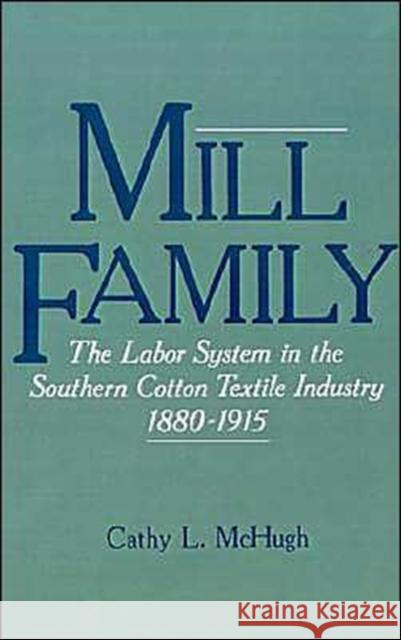Mill Family » książka
Mill Family
ISBN-13: 9780195042993 / Angielski / Twarda / 1988 / 160 str.
The growing cotton textile industry of the postbellum South required a stable and reliable work force made up of laborers with varied skills. At the same time, Southern agriculture was in a depressed state. Families, especially those with many children, were therefore forced to look for work in the textile mills. Mill managers, in their own interest, created the basis for a distinctive social and economic structure: the Southern cotton mill village. These villages, which included such accoutrements as good schools for the children, were paternalistic work environments designed to attract this desirable source of workers. This book examines the role of the family labor system in the early evolution of the postbellum Southern cotton textile industry, revealing how the mill village served as a focal point of economic and social cohesion as well as an institution for socializing and stabilizing its workers. The paternalism of the mill villages was not merely an instrument of capitalistic indoctrination, contends McHugh, but was shaped by market forces. McHugh employs a valuable body of archival material from the Alamance Mill, an important cotton textile mill in North Carolina, to illustrate her arguments.











